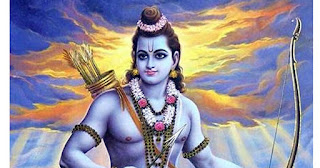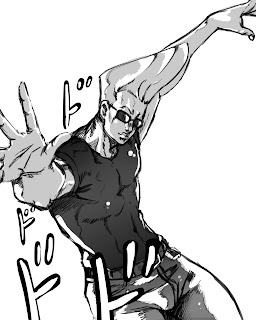Reading Notes: Ramayana section A
Leaked still from Avatar 7 (source)
Hello everyone, NitroDubbz here.
I have begun reading the R. K. Narayan version of The Ramayana. I will start off with some first impressions.
I thought my reading comprehension would be lower, what with all the unfamiliar Indian names, but it's really not that bad. The Ramayana is very dramatic with very large, nonsensically large in fact, scales of things. For example, digging up the Earth to find a horse and inadvertently creating the oceans. Praying for 30,000 years, Vishnu's incarnation walking across the entire universe in two steps, Indra being covered in vaginas, Rama stringing a giant bow. I don't know if you've ever tried to string a recurve bow but that's hard enough without it being 100 feet long and belonging to a God.
I thought that the story structure would be similar to the classic hero's journey, or bildungsroman. While it certainly consists of similar events, it lacks the character development important in many western coming-of-age stories. I assume this is because Rama is an avatar of Vishnu and so he's supposed to be perfect. We are shown other characters flaws, such as the king whose infatuation with Kaikeyi forced him to send Rama into exile, or Lakshmana's rage when he vows to kill Kaikeyi and restore Rama as the rightful successor to the throne. But Rama has no flaws, he's pretty much fine with whatever happens.
From the prologue and intro I believe that Ramayan's version of the Ramayana is heavily condensed. This leaves out a lot of details important to characterization, but there's a snippet that was left in that I really liked. When Rama goes to the big fancy city that's so affluent that people leave jewelry on the ground, his and Sita's eyes meet.
Sita being a princess, is at the very top of this already extremely wealthy society, she has all manners of worldly comforts available to her, yet all she sees in her surroundings is pain and torment. This really makes you understand how badly her and Rama's hearts ache for each other. It's a bit of characterization that I wasn't expecting. It reminds me of a quote from Ralph Waldo Emerson's essay "Experience"
"It depends on the mood of the man, whether he shall see the sunset or the fine poem."
Well, I've hit the word count so that's all for today my fellow Americans. Until next time, I'm NitroDubbz.
R. K. Narayan: The Ramayana
http://dt.pepperdine.edu/courses/greatbooks_v/gbv-15/66697602-The-Ramayana-R-K-Narayan.pdf



Comments
Post a Comment